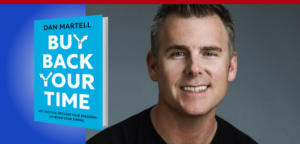Happy New Year, everyone! It’s 2024, and we’re starting off with a bang. This episode is all about helping you rock your resolutions—especially if getting fit and shedding some extra pounds are on your to-do list.
In this episode, Ted is going to reveal the secret weapon to turbocharge your fat loss in 2024. He will explain a scientific study about whole foods and processed foods and will break down the implications of the thermic effect of feeding, unveiling the hidden impact of food choices on calorie expenditure.
He will also discuss how our bodies handle and burn calories differently based on food quality, will reveal some effective strategies to lose fat while still enjoying your life and your favorite foods.
Listen now and get ready to make 2024 the year you crush your fitness goals!
You’ll learn:
- The impact of your food choices on fat loss
- Whole foods vs Processed foods
- About the “Postprandial Energy Expenditure in Whole-Food and Processed-Food Meals” scientific study
- The secret strategy to fueling your fat loss
- It’s not just about the number on the scale
- The implications of this thermic effect of feeding
- How our bodies handle and burn calories differently based on food quality
- Rethinking our plates
- Effective strategies for sustainable fat loss and a healthier life
- How to lose fat while still enjoying your favorite foods
- And much more…
Related Episodes:
Ted Talk 200: Why Clean Eating Isn’t The Magic Fat Loss Bullet You Think (And What to Do Instead)
Ted Talk 190: Are Calories All That Matter For Weight Loss? – Ask Ted
Links Mentioned:
Join The Unstoppable After 40 Newsletter
Learn More About The Unstoppable After 40 Coaching Program
Schedule a 15-Minute Strategy Call with Me!
Watch My Body Breakthrough Masterclass
Ready to make 2024 your best year ever?
We just opened spots for our Unstoppable After 40 Coaching Program starting on January 4th.
Together, we’ll craft a personalized plan to reclaim your health and transform your body in a way that fits your busy lifestyle.
If you want to learn more about our program, click here!
We have limited spots, so don’t wait until January to book your call. Click here!
Podcast Transcription: The Secret Weapon to Turbocharge Your Fat Loss in 2024 with Ted Ryce
Ted Ryce: Today, we're going to clear up some confusion about calories and food quality. For example, have you ever heard me say that fat loss is all about the calories? That you can eat any food that you want and you can lose fat if you keep your calories less than you burn? And you can also gain weight, even if you're eating good quality food, if you're overeating calories.
Well, today I'm going to dive into the nuance here because this is something that gets brought up a lot on social media, but it's really hard, at least for me with my writing ability, to dive into it.
So, if you've ever wondered what is the real difference? I know there's something different about eating chicken breast and broccoli versus donuts. There's got to be something different there and beyond just the protein. So, we're going to dive into that today.
What's up, my friend? Welcome to the legendary live podcast. I'm your host, Ted Ryce, health expert and coach to entrepreneurs, executives, and other high-performing professionals.
Now we do this show for two reasons. Number one, I've been in this industry for 24 years, and it's my job to help you avoid the many mistakes and dead ends that I went down in 24 years so that you can get better results, the best results by listening just to this podcast. And the second reason is if you are a high achiever and you value your time and you want to lessen the effort, and lessen than the time it takes to get into the best shape of your life, especially if you're over 40, you'll know who to hire. So, let's dive in.
We're going to be talking about the impact of your food choices on fat loss, and specifically the difference between what we might say whole foods or minimally processed foods versus highly processed foods or ultra-processed foods. And to help us explain this difference, we're going to be looking into a study called...
This was published in 2010, by the way, they figured this out. And the study, it was, let's see, where was it published again? Food and nutrition research. And the title of this study is a really sexy marketing name. It's called, it's named “Post-Brandial Energy Expenditure in Whole Food and Processed Food Meals: Implications for Daily Energy Expenditure”.
And if you've ever wondered why health influencers go viral, and researchers don't, it's because the titles of research papers sound like that.
However, one of the reasons, this is a bit of a side note, but I think it's important. One of the things that I'm here to do is to help translate the research into something meaningful and actionable so that you can follow. And in this study, they did something really cool. What they did was they asked the question, okay, well, does it really matter a whole food meal versus a processed food meal? For sure it's about calories, but is there something different about the foods?
And what they did was this: they got two groups of people, both men and women, and they were both healthy men and women, very important to state because some people, some populations in studies, they're unhealthy. So, these were healthy men and women, no diabetes or heart disease or anything like that.
And what they did was they had two groups. One would eat either the whole meal, whole food meal, which was multigrain bread and cheddar cheese. And they compared it to white bread and processed cheese and processed cheese product. So, it was...
The only differences here, so it was both bread, it was a bread and cheese sandwich. And one group ate the multigrain bread with cheddar cheese, the other group ate white bread and processed cheese product. And they did something else that was really smart.
They made the macronutrients almost equal, not exactly equal, but the meals were comparable in terms of protein, there were 15 to 20% protein, carbohydrates were 40 to 50%, and fat 33 to 39%. In other words, there's very little difference between the macronutrients here. And that's extremely important.
Because if you've heard me talk about the low-carb studies that were done 15 years ago, you've heard me talk about how low-carb diets were thought to produce better fat loss results because, well, what we ended up finding was when we compared low-fat and low-carb and made the protein equal, there was no difference.
So, it was just that people in general who do low-carb diets eat more protein and get better fat loss results. But when you design a diet that is equal in protein, it doesn't matter if it's low-carb or not. So, the scientists here, they made sure the meals were comparable in terms of protein, carbohydrate, and fat.
So, another thing that was interesting was they measured the satiety ratings after the two meals. And if you don't know what satiety is, it's just how hungry you are after eating the meal.
And there was no significant differences in satiety. So, people felt satiated after eating each meal. But what was interesting was that they measured the calorie burn of eating the food. Now, if you're saying, well, what do you mean by that? I burn calories by eating food?
Yes, you do. And I just want to cover. I want to spend one minute covering what your metabolism is. So, most people when they say metabolism, they don't know what they're talking about. But if you've been listening to this show, hopefully you remember, there's your basal metabolic rate, that's about 70% of the calories you burn every day is just keeping your body alive, right?
Your hair grows, your nails grow, your heart pumps, your brain gets nutrients. I mean, all this stuff goes on in your body and you're not even conscious of it. And that's the majority of the energy that you burn every day is just that. Then there's about 10% of what you do every day is what you might call your non-exercise activity thermogenesis.
That's just a complicated way of saying how much you move around. And then you have what's called your exercise activity thermogenesis, and that's about 5% for most people. So, if you're in the gym a few times a week, only 5% of the energy that you burn comes from exercise. However, there's one more factor here, and that's the thermic effect of food.
And the thermic effect of food is this. Digestion is an energy-intensive process. It costs energy to digest food. In fact, about 10% of the calories you eat every day just get burnt up in the process. Because you got to think about it. You got to pick the food up, probably doesn't take too many calories to do that. Put it in your mouth, chew it, swallow it.
And that's when the real work starts is the digestion process. So, eating food and digesting food and absorbing the nutrients in food costs energy. So, back to the study, think about this. So, these two groups of people ate the same amount of calories.
So, they ate the same amount of calories. One meal was a whole-food meal – again, that was the multi-grain bread and cheddar cheese. The other was white bread and processed cheese product. So, the calories coming in were the same. Are you with me? But what happened when the calories got into someone's digestive system?
In other words, the number of calories burned in the digestion of either the whole-food meal or the processed food meal changed. In fact, what they measured was there was a difference of 65 extra calories eating the whole-foods meal.
So, I want you to think about that because this is where the nutrition science gets a little bit more complicated to understand. Yes, it's calories in versus calories out. Period. So simple. Except there are all these nuances. For example, yes, you can eat processed foods and still lose fat, but there's this other factor – this thermic effect of eating that happens. So, I want you to think about this.
So, 65 extra calories per meal. And let's say, let's say everyone, let's say both groups were eating the same except for this meal. So, think about this. In three days' time, the whole-food meal – or let's do what's an easy number here, let's do five days – in five days, the whole-foods group would burn an extra 325 calories.
If my math is right. So, 325 extra calories versus the processed meal where you're burning 325 fewer calories. So, in five days, that can matter. And this is where the tracking of calories gets a bit tricky because two people can be eating the same amount of calories.
So, the same amount of calories is coming in. However, if one person is eating more whole foods and the other person is eating more processed foods, there's this thermic effect of feeding that happens that's very hard to track. I mean, it's impossible really to track. And the only way that you know if you're doing the calorie tracking right and in your calorie deficit is if you're losing weight. So, what are you taking away from this right now?
And I want to share my takeaway. So, why does this matter? Well, this is one of the reasons why I coach my clients to eat more whole foods. And you might've heard of the 80-20 rule. Focus 80% of the time on eating whole foods, then 20% of the time eating what you want. Now, it doesn't have to be 80-20. That's just something we throw out there.
But just understand if you're eating more processed foods, like let's say you love white bread and cheese food product – no judgments. Cheese food product sounds disgusting. I've had it, but it's not real cheese, right? It's the cheap stuff. However, just understand if you're not losing weight, you could eat the same amount of calories but shift to a more whole-food diet, and it just may move the number more on this scale.
So, that's the takeaway here. That those are the nuances. And by the way, this is the difference between amateurs and experts. I know this, I'm on top of this. And this is the type of thing that I look for. If someone's not getting results in my program, I look at, okay, well, let's see how many calories are they tracking? Are they tracking accurately?
And then what are their food choices? Then I say, okay, well, are they being consistent with their weight workouts? Okay, well, how many steps are they walking? Because it's about creating the balance between all these things.
So, think about that. And so, what I'd tell you to do is experiment with replacing processed snacks or processed foods with more whole, less and less processed foods. For example, if you're eating white bread, try eating multigrain bread if it's something that you don't mind.
Because one of the things, one of the issues that I want to avoid is not being clear about this because you may hear, well, it's just that calories matter. And it's true, but for fat loss, at least, right?
We can, we can talk about vitamins, minerals, fiber, and phytonutrients. But when we're talking about fat loss, it's just the calories. However, one of the things that happens is you burn more calories when you're eating whole foods.
Replacing those processed foods with whole foods is going to make a difference. Now, I want to even, again, like the swapping out white bread or processed cheese food for multigrain bread and real cheese, as an example.
Another thing is, if you are, let's say you're like, you know what, I'm not going to do that. I like white bread. I like cheese food product. It's like, okay, well, you may have to make up for that by dropping the amount of calories that you're eating by, let's say, 200 to see a significant loss in fat if you're going to be eating more processed food.
So, those are the takeaways here. And definitely, here's the thing. I want to also say this. There is no argument about like, hey, eat whole and minimally processed foods, that's better for you. In general, that's true. The reality though, is some of us like Cheetos and white bread and almond croissants.
And what I want to tell you is that's okay. However, just be mindful of these nuances in nutrition, especially with fat loss, because it can help you explain your results or lack of results.
And what I'm doing here is not trying to tell you, hey, get rid of processed food. I'm telling you, make informed decisions and understand that there are these other factors that come into play.
So, you might be tracking your one slice of multigrain bread compared to your one slice of white bread, you know, there's a difference there. The calories coming in might be the same, but the way they're processed is different. And these factors, they're the difference that makes the difference. So anyway, what can you do? What are you taking away from this episode, where you feel like you know what, I'm going to make this change and do this as an experiment?
Either you can start to swap out your more processed foods for whole and minimally processed foods. Or you could start to cut down on the number of calories that you're eating if you don't want to change the way you're eating right now if you've got, let's say, a significant amount of processed food like white bread, etc., in your diet.
And the last thing I'd say about this is, just understand that what we're looking for here is sustainability because that's what matters most. What you can stick with. And that's why, that's why if you listen to the more, let's say, extreme people on social media, they'll tell you just don't eat, stop eating sugar. Stop eating processed foods. I don't tell you that. I don't tell you what to do.
I share with you what the science says. And then I also share with you, hey, listen, you've got to take the science to make better decisions to get the results that you want. And there's a way to do that. There's always a way to do that.
So, no matter if you're a person and you're like, I hate vegetables and I like white bread and cheese food, you can still get results doing that because one of the most common things that I see is that people feel really guilty about their food choices.
In fact, the other day on Twitter or X, I made a post about taking care of your body because it's the only one you got. And then someone underneath said, "Oh man, I just read this and, but I just ate a hamburger." I said, "Well, what's wrong with eating a hamburger? I mean, maybe if you're eating a hamburger and fries and you're doing that every meal but there's nothing wrong with a hamburger.”
There's also a difference between eating a hamburger that you make at home versus a McDonald's hamburger. That's again going to be more processed.
So, I want you to start to think about these differences, think about, okay, well, what can I do differently based on what I've heard today? And also, how does this affect long-term sustainability for me? So those are the questions I want to leave you with, and that's what I coach my clients on.
But I wanted to leave you also with this. No matter what you're doing, you can get results. It is not your age, it's not your metabolism, it's not your hormones, it's your strategies.
And if you change your strategies, I don't care if you're 40, 50, 60, 70, 80 years old, you can lose fat, you can build muscle, you can improve your health. So, if you're not getting the results that you want, keep tweaking, keep learning, keep experimenting. You can get those results.
I promise you there is nothing about your age, metabolism, hormones, none of that is stopping you. It is simply your strategies and something needs to be tweaked. Don't stop until you find out what that is. And obviously if you're a high performer and you're looking for that next level help, you know who to contact but give it a try on your own.
And that's all I got for you today. Hope you enjoyed this. Have an amazing week and I'll speak to you soon.
Sign up to receive email updates
Enter your name and email address below and I'll send you periodic updates about the podcast.









